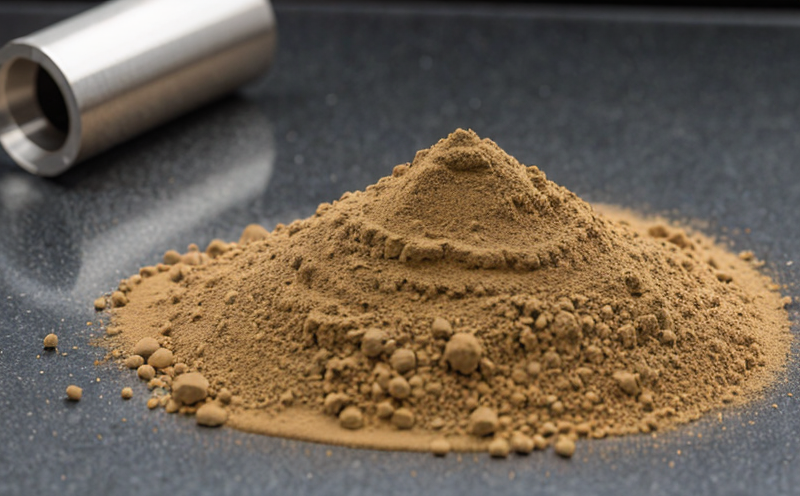ISO 1133 Melt Flow Index (MFI) Testing
The ISO 1133 standard is widely recognized in the plastics industry for determining the melt flow rate of thermoplastics. This test measures the mass or volume of polymer extruded through a die under specified conditions, providing critical insights into the processability and performance properties of materials.
During MFI testing, the sample is heated to its melting point and then forced out of a small-diameter cylindrical die by applying controlled pressure. The molten material flows at a constant temperature and load for a fixed period, after which it is weighed or measured in terms of volume. This quantitative data helps assess the molecular weight distribution and overall quality of the plastic.
Quality managers rely on MFI test results to ensure that raw materials meet specification requirements, thereby preventing costly errors during production processes. Compliance officers use these tests to verify adherence to international standards like ISO 1133, which is essential for maintaining market access in regulated industries.
The process involves careful sample preparation and handling to avoid contamination or degradation of the polymer. For accurate results, samples must be free from impurities such as fillers or additives that could alter their flow behavior under test conditions. Properly trained personnel are required to operate the testing equipment correctly to ensure consistent and reliable data.
In some cases, multiple tests may be conducted on different sample sizes or at varying temperatures to capture a comprehensive picture of material performance across various application scenarios. Understanding how these variables affect MFI readings is crucial for optimizing manufacturing processes and ensuring product consistency.
For R&D engineers, MFI testing provides valuable input when developing new formulations or improving existing products. By studying changes in MFI values under different processing conditions, they can identify optimal parameters that balance processability with desired physical properties like strength and flexibility.
The equipment used for performing ISO 1133 tests includes a heating block, a die holder, a piston, a barrel, and an extruder. The sample is placed in the heated chamber of the extruder, where it melts and flows through a constricted orifice under controlled pressure.
- Heating Block: Ensures uniform temperature throughout the extrusion process.
- Die Holder: Holds the die securely during testing.
- Piston: Pushes the molten polymer through the die.
- Barrel: Contains the sample and controls its movement within the extruder.
- Extruder: Drives the piston to apply pressure to the molten material.
Quality and Reliability Assurance
MFI testing plays a vital role in ensuring consistent quality across production batches. By monitoring MFI values, manufacturers can detect shifts or variations that might indicate issues with raw materials, processing conditions, or equipment performance.
Data from repeated tests over time allows for trend analysis, helping to identify potential problems before they become critical defects. This proactive approach enhances reliability and reduces the risk of non-conforming products reaching end users.
Compliance officers benefit significantly from MFI testing by ensuring that all raw materials used in production meet specified criteria outlined in relevant standards such as ISO 1133. Consistency across suppliers is crucial for maintaining uniform product quality, which is particularly important when dealing with complex supply chains.
Incorporating MFI tests into a robust quality assurance program supports continuous improvement efforts aimed at enhancing overall productivity and reducing waste. It also facilitates better decision-making regarding supplier selection and process optimization.
International Acceptance and Recognition
- ISO 1133 is one of the most commonly used standards for melt flow index testing worldwide.
- The results are accepted in numerous countries, including the United States, Europe, Asia, and Australia.
- Many regulatory bodies recognize ISO 1133 as an authoritative source for evaluating thermoplastic materials.
- Industry associations often recommend or require adherence to this standard when specifying raw material performance characteristics.
Competitive Advantage and Market Impact
Companies that invest in thorough MFI testing gain several competitive advantages. They can better understand how their materials behave under various processing conditions, enabling them to tailor products more precisely for specific applications.
This deeper understanding of material properties translates directly into improved product performance and enhanced customer satisfaction. In highly competitive markets, such insights provide a clear edge over competitors who may not possess comparable levels of expertise or testing capabilities.
Moreover, adherence to international standards like ISO 1133 can open doors to new markets where stringent regulatory requirements apply. It demonstrates commitment to quality and reliability, which are increasingly valued by discerning buyers looking for high-performance materials.
A strong reputation built on reliable MFI testing results also fosters trust among stakeholders, including suppliers, partners, and customers. This trust is essential for building long-term relationships based on mutual respect and shared goals.





